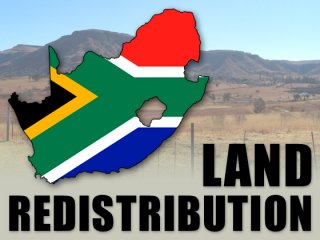South Africa reopens land claims process
1 July 2014
South Africa has reopened its land claims process, allowing people who were removed from their land under apartheid rule, but who missed an earlier deadline for lodging claims for compensation, to do within the next five years.
On Monday, President Jacob Zuma signed into law the Restitution of Land Rights Amendment Act, which reopens the restitution claims process that closed at the end of 1998 and gives claimants five years – until 30 June 2019 – to lodge further claims.
It is estimated that at least 3.5-million South Africans were forcibly removed from their land as a result of the Native Land Act of 1913, which effectively reserved 87 percent of land in the country for the white minority.
Many people ‘unaware of first window’
Briefing reporters in Cape Town on Tuesday, Rural Development and Land Reform Minister Gugile Nkwinti said his department had conducted extensive consultations before advocating the re-opening of the land claims process.
“The first period for lodgement was opened between 1994 and 1998,” Nkwinti said. “Although land claims were made and settled, a great number of people complained that they had not been aware of the process at the time and as such they had missed the initial lodgement window.”
Nkwinti said the Restitution of Land Rights programme was necessary for redress, reconciliation and nation building, adding that it was in line with the National Development Plan’s (NDP’s) goal of eliminating poverty and reducing inequality by 2030.
“It is my conviction that the issue of access to land is one of the fundamental elements to the transformation of the rural economy of our country, where the burden of land dispossession was mostly felt.”
Policy on Khoi, San ‘being developed’
Nkwinti said the government was conscious of the fact that the law as it stood did not accommodate the country’s Khoi and San communities, who suffered dispossession long before the passing of the 1913 Land Act.
“Their plight is not forgotten. I want to assure them that a policy on the exceptions to the 1913 Natives Land Act cut-off date is being developed that seeks to address their concerns.”
The minister said that claims that had been lodged before the 1998 cut-off period but had not yet been settled – numbering about 8 471 – had been prioritised for settlement.
“I am appealing to those individuals and communities affected to continue to exercise patience while we are resolving their claims and not to lodge their claims again. The outstanding claims will be processed simultaneously with the new ones.”
Warning to fraudsters, freeloaders
At the same time, Nkwinti issued a stern warning to those who sought to help people lodge land claims while charging them a fee.
“These individuals are criminals. Lodging a claim is a free government service and anyone who is charging money is doing so illegally.”
It is also illegal to submit a fraudulent claim, including one that fails to disclose other potential interested parties, as well as to attempt to prevent someone else from lodging a claim.
“I am calling on members of society to report their suspicions about any illegal activity in this regard by calling the government anti-fraud hotline number 0800 701 701.”

